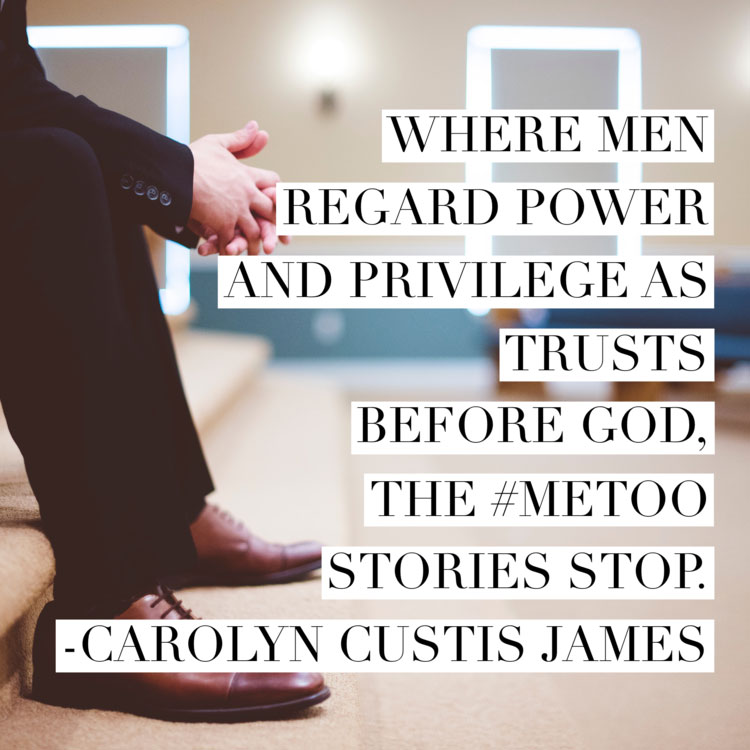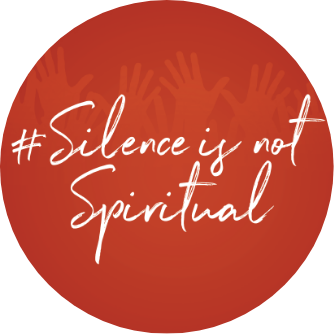naomi’s lament and #metoo

Current events have a way of shedding fresh light on familiar Bible narratives that some of us have been hearing since we were children.
The desperate plight of millions of refugees in today’s world should surely give us pause before callously and peremptorily dismissing Naomi as a whiner and complainer over her losses and suffering in the Old Testament book of Ruth.
#MeToo and #ChurchToo hashtags may be new, but the underlying stories are tragically as old as human history. The Bible is full of them. These current movements not only raise greater awareness of sexual abuse and violence against women and girls today, they open our eyes to #MeToo stories in the Bible that we have simply overlooked. Justice is finally being served for Hagar, Bilhah, Zilpah, Tamar, Rahab, Bathsheba, Esther, and others.
Surprisingly, #MeToo also factors into the story of Naomi and Ruth.
For far too long we’ve glossed over Naomi’s sufferings and characterized her losses as merely setting the stage for the propitious meeting between Boaz and Ruth and what is basically a rags to riches romance (a.k.a. Cinderella story) where Boaz rescues Ruth from her dismal life of poverty and widowhood. Not only are we doing terrible injustice to Naomi. This also creates an unjust characterization of Ruth and Boaz.
A more realistic appreciation of the degradation and suffering of refugees better prepares us to grasp the intensity of Naomi’s ordeal. Becoming a famine refugee was only the beginning of her losses.
A litany of agonies follow: widowhood, the marriages of her two sons to pagan girls, ten years of double infertility that threaten the family with extinction, followed by the deaths of both her sons. All this without a whisper of intervention from Naomi’s God.
Under patriarchy a woman’s value is measured by counting her sons. The deaths of Naomi’s sons reduce her from a respectable mother of two sons to a throw-away zero.
Little wonder Naomi is inconsolable and that the road from Moab to Bethlehem resounds with her bitter lament.
“Don’t call me Naomi . . . Call me Mara, because the Almighty has made my life very bitter. I went away full but the LORD has brought me back empty. Why call me Naomi? The LORD has afflicted me; the Almighty has brought misfortune upon me” (1:20-21)
This is the story of a female Job. Naomi’s bitter lament invites us to be honest and lament too—over our own brokenness and the #MeToo epidemic inflicting trauma on women and girls worldwide and adding more stories as I write and you read these words.
The threat of #MeToo violence for Naomi and her daughters-in-law becomes an instant reality with the deaths of all the men in her family. Widows globally today are easy targets for those who can abuse, exploit, and violate them with impunity. This may in part explain Naomi’s determination to send her daughters-in-law back to the safety of home and family.
What follows instead, is one of the most radical conversion moments in the entire Old Testament. With her mother-in-law’s lament still ringing in her ears, with a future of suffering and danger ahead, Ruth defiantly digs in her heels and embraces Naomi and Naomi’s God.
The meetings between Ruth and Boaz—in his barley field and at the threshing floor—present situations that could have turned out badly for Ruth. She is young, female, foreign, and gentile. In twenty-first century categories, Ruth is Arab (Jordanian) and an undocumented immigrant. Patriarchy deprives women of voice, agency, and legal rights—but Ruth boldly claims all three anyway. Boaz is male, Jewish, the descendant of one of Israel’s leading families, and a rich landowner. From birth, patriarchy bestows males with power, privilege, and legal rights. The power disparity between the pair is chilling.
In Bethlehem, Ruth’s decision to glean is a matter of survival. At the same time, it exposes her to greater risk by requiring her to venture out alone into the fields of Bethlehem. Even greater danger is involved when she approaches Boaz in the dead of night at the threshing floor. There in the darkness, where no one is looking, Boaz can do anything he wanted to her. If it came down to “he said/she said”, no one in all Bethlehem would take her word over his.
But this is where Ruth’s story (Naomi’s too) changes. Instead of using his power and privilege to exploit, Boaz exercises both to empower Ruth and ensure her efforts on Naomi’s behalf succeed. He lives under the gaze of God, even when no one else is looking. That changes everything—for Boaz, Ruth, and Naomi.
When Boaz connects the unknown gleaner in his field with the young Moabitess all Bethlehem is talking about, he intervenes by telling his men “not to lay a hand on [her].” Later Naomi will urge Ruth to remain in the field of Boaz “because in someone else’s field you might be harmed.”
Clearly the #MeToo risks are there. But where men regard power and privilege as trusts before God, the #MeToo stories stop.
During this Lenten season, let us lament with Naomi the suffering of God’s daughters; let us step out in courage like Ruth; and let us pray that God will raise up more men like Boaz to join us in breaking our silence and ending the #MeToo/#ChurchToo epidemic.
Carolyn Custis James, is an author, activist, and international speaker. She is a consulting editor for Zondervan’s Exegetical Commentary Series on the New Testament and an adjunct professor at Biblical Theological Seminary in Philadelphia. She blogs at www.carolyncustisjames.com and as a Leading Voice at http://www.missioalliance.org/author/carolyncustisjames/. She’ll tell you the Old Testament book of Ruth has changed her life. She has published two books on Ruth to get that explosive message out—The Gospel of Ruth: Loving God Enough to Break the Rules (2008) and the newly released Finding God in the Margins (2018).


